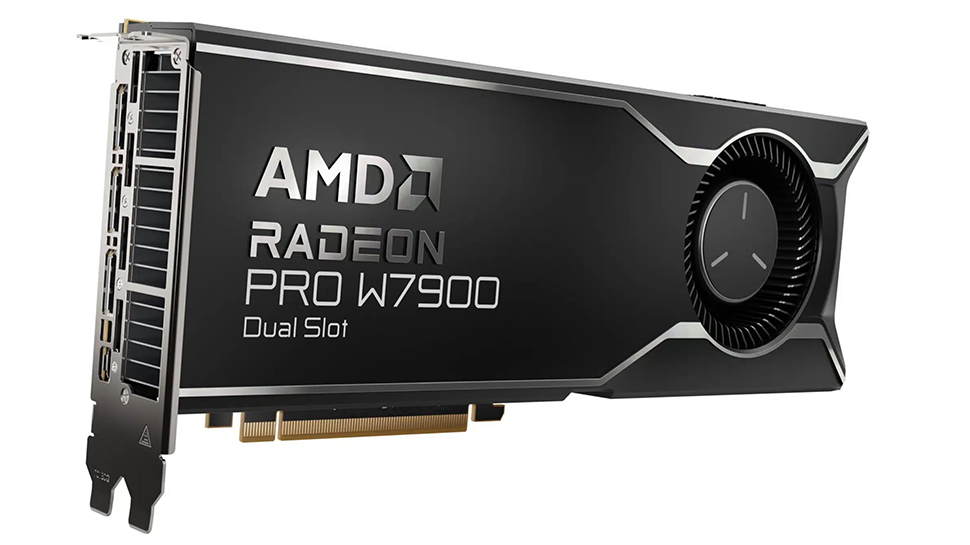AMD launches puzzling new graphics card that will absolutely not appeal to gamers — dual slot W7900DS looks like the old W7900, offering very similar performance but with a big discount
AMD is targeting Nvidia's RTX Ada 6000

Sign up for breaking news, reviews, opinion, top tech deals, and more.
You are now subscribed
Your newsletter sign-up was successful
AMD unveiled a number of new products at Computex 2024, including an intriguing new graphics card, the Radeon PRO W7900DS. This is a Dual Slot (that’s the DS in its name) workstation product that is optimized for high-performance platforms supporting multiple GPUs, and for Gen AI workflows.
AMD says its new card delivers up to 52% better performance than a Nvidia RTX 6000 Ada in a comparable system, and 38% better performance-per-dollar in Llama 3 70B Q4 in the same system.
Specs for the new PRO W7900DS card include 96 compute units, 192 AI accelerators, 48GB GDDR6 ECC memory, and 295 watts of total board power (TBP). It has a two slot form factor and DisplayPort 2.1, which offers 12K resolution at 60Hz.
Cheaper pricing
AMD says of the new W7900DS card, “Empowering developers to conduct AI development locally, it is ideal for ultra-high-performance AI workstations while keeping sensitive data in-house.”
The new PRO W7900 Dual Slot card is expected to be available beginning June 19, 2024. Pricing is set for $3,499 and offers quite a saving on the Nvidia RTX Ada 5000, which typically retails for $4000, and the Ada 6000, the system AMD is targeting with its comparisons, which is much pricier at $6800. It's no accident that AMD has tried to pitch its new product at almost half the price.
AMD unveiled the original PRO W7900 back in April 2023. That card, the first to be able to handle 50 million pixels on one port, also has 96 compute units, and 48GB of GDDR6 ECC memory. At launch it retailed for $3999, so the new card offers a decent saving, even if you don’t get a massive performance boost from the DS model.
More from TechRadar Pro
- Would Apple launch an AMD-powered Mac Pro in 2023? That would be Epyc
- AMD unveils first graphics cards that can handle 50 million pixels on one port
- Yes, AMD has a secret weapon to fight off Nvidia AI armada
Sign up to the TechRadar Pro newsletter to get all the top news, opinion, features and guidance your business needs to succeed!

Wayne Williams is a freelancer writing news for TechRadar Pro. He has been writing about computers, technology, and the web for 30 years. In that time he wrote for most of the UK’s PC magazines, and launched, edited and published a number of them too.